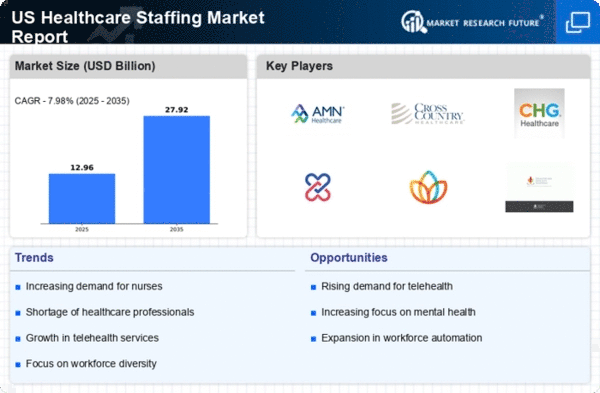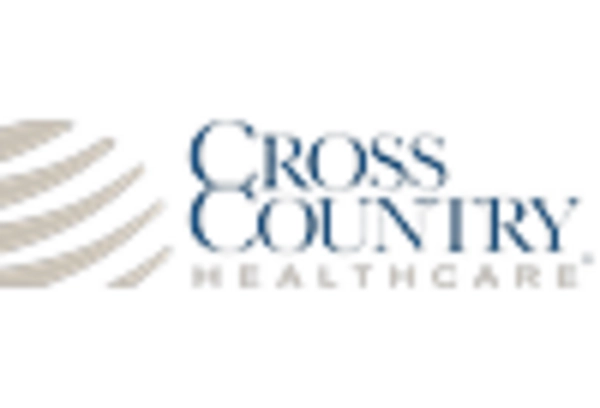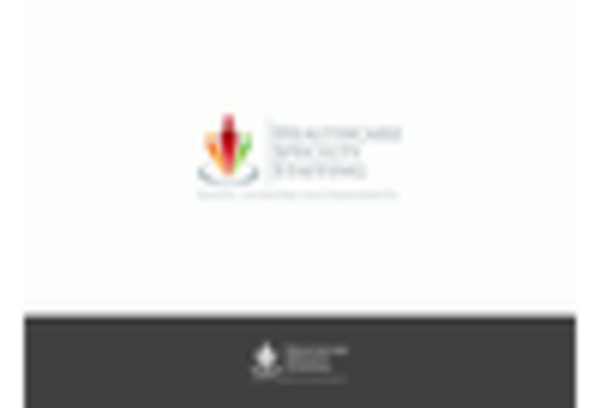Rising Healthcare Expenditures
Rising healthcare expenditures in the United States are driving growth in the healthcare staffing market. As healthcare costs continue to escalate, organizations are compelled to enhance their service offerings and improve patient outcomes. This trend is reflected in the projected increase in national healthcare spending, which is expected to reach $6 trillion by 2027. Consequently, healthcare providers are likely to invest more in staffing to ensure they can deliver high-quality care while managing costs. The healthcare staffing market is poised to benefit from this trend, as organizations seek to recruit and retain skilled professionals to meet the demands of an increasingly complex healthcare landscape.
Shift Towards Value-Based Care
The shift towards value-based care is transforming the healthcare staffing market by emphasizing quality over quantity in service delivery. This model incentivizes healthcare providers to focus on patient outcomes, which in turn requires a well-trained and adequately staffed workforce. As organizations transition to value-based care, they may need to adjust their staffing strategies to ensure that they have the right mix of skills and expertise. This shift is likely to drive demand for specialized roles, as healthcare providers seek to enhance care coordination and patient engagement. In 2025, it is projected that value-based care initiatives will influence staffing decisions, leading to a more dynamic and responsive healthcare staffing market.
Aging Population and Healthcare Needs
The aging population in the United States is a primary driver of the healthcare staffing market. As the baby boomer generation continues to age, the demand for healthcare services is expected to rise significantly. By 2030, it is projected that 20% of the U.S. population will be 65 years or older, leading to an increased need for healthcare professionals across various settings. This demographic shift necessitates a robust healthcare staffing market to ensure that facilities can meet the growing demand for services such as nursing, rehabilitation, and long-term care. Consequently, healthcare organizations are likely to invest more in staffing solutions to maintain quality care and address the needs of an older population.
Technological Advancements in Healthcare
Technological advancements are reshaping the healthcare staffing market by streamlining recruitment processes and enhancing operational efficiency. The integration of artificial intelligence (AI) and data analytics in staffing solutions allows healthcare organizations to identify qualified candidates more effectively. For instance, predictive analytics can help forecast staffing needs based on patient volume and acuity levels. This trend is particularly relevant as healthcare facilities strive to optimize their workforce while managing costs. In 2025, it is estimated that healthcare organizations will allocate approximately $5 billion towards technology-driven staffing solutions, indicating a strong commitment to leveraging technology in the healthcare staffing market.
Regulatory Changes and Compliance Requirements
Regulatory changes and compliance requirements significantly impact the healthcare staffing market. The healthcare industry is subject to stringent regulations that govern staffing practices, including licensure, credentialing, and training standards. As these regulations evolve, healthcare organizations must adapt their staffing strategies to ensure compliance. For example, the introduction of new federal and state regulations may require additional training for healthcare staff, thereby increasing the demand for qualified personnel. In 2025, it is anticipated that compliance-related staffing expenditures will account for approximately 15% of total staffing budgets in the healthcare staffing market, underscoring the importance of regulatory adherence.
















